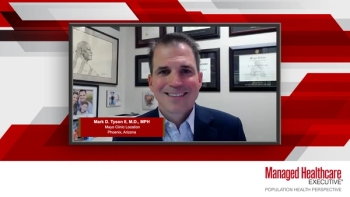Mark D. Tyson II, M.D., MPH
Articles by Mark D. Tyson II, M.D., MPH

An expert discusses how community-based gene therapy administration has broadened treatment options for patients with BCG-unresponsive NMIBC by providing easier logistics compared with complex chemotherapy regimens, ultimately expanding bladder-sparing approaches and avoiding radical cystectomy in younger, sexually active patients.

An expert discusses how less frequent administration of therapies like nadofaragene (every 90 days) significantly reduces clinical resource burden compared with combination treatments like gemcitabine-docetaxel, which require extensive logistics, chemotherapy-licensed staff and daily clinic visits.

An expert discusses how clinics can successfully implement gene therapy workflows by establishing strong institutional protocols, assigning dedicated clinic coordinators, and using strategies like rectal diazepam premedication to prevent bladder spasms and medication loss during expensive treatments.

An expert discusses how integrating newer NMIBC therapies faces operational barriers including administration logistics, staff training and formulary restrictions, while solutions require better comparative data, institutional protocols and industry partnerships to overcome unwarranted practice variation.

An expert discusses how real-world evidence is driving gene therapy adoption in BCG-unresponsive disease primarily through demonstrated durability and excellent tolerability, with 30% to 40% of patients achieving long-term disease-free survival despite the need for better comparative data to guide treatment selection.

An expert discusses how high-cost gene therapies require evidence standards including Phase 3 trial data showing complete response rates and durability, real-world evidence and health economic analyses to guide clinical use and coverage determinations before payers scrutinize their carte blanche approval.

An expert discusses how recent updates to AUA, EAU and NCCN guidelines have cautiously shifted toward more bladder-sparing approaches for BCG-unresponsive patients, incorporating new FDA-approved therapies as conditional recommendations for those unwilling or unable to undergo radical cystectomy.

